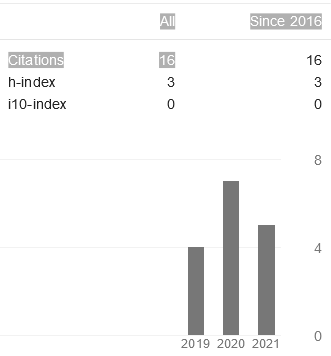The Effect of Spiritual Health on The Resilience of Level II Cadets at Maritime Higher Education in Jakarta
Abstract
Cadets have a different education system for general students. Cadets are required to enter the dormitory during the education period and follow all existing rules and schedules, sometimes the rules and schedules that exist make cadets feel unfree and feel pressured. Resilience is an individual's ability to survive difficult situations, and adapt and rise from those situations. One of the factors that influence resilience is spiritual health. Spiritual health is the condition of the individual's soul that is free from spiritual illness and the ability of the individual to develop potential. This study aims to determine the effect of spiritual health on resilience in level II cadets at XYZ Maritime Higher Education. This study used quantitative methods with simple regression analysis techniques. The sampling of this study used convenience sampling techniques as many as 105 cadets. The results showed that there was an effect of spiritual health of 26.1% on resilience and 73.9% influenced by other factors. The significance value with the t value is calculated > t table (6.030 > 1.659). Suggestions from this study can be developed with further analysis and using different variables and for The school institutions can enhance existing religious activities in schools to help cadets improve their spirituality.
Copyright (c) 2023 Trisya Nabila Nafaz, Aliah B. Purwakania Hasan, Siti Rahmawati

This work is licensed under a Creative Commons Attribution-ShareAlike 4.0 International License.
Authors who publish with us agree to the following terms:
- Authors retain copyright and grant the publisher right of first publication with the work simultaneously licensed under a Creative Commons Attribution License that allows others to share the work with an acknowledgement of the work's authorship and initial publication in this proceeding.
- Authors are able to enter into separate, additional contractual arrangements for the non-exclusive distribution of the proceeding's published version of the work (e.g., post it to an institutional repository or publish it in a book), with an acknowledgement of its initial publication in this proceeding.
- Authors are permitted and encouraged to post their work online (e.g., in institutional repositories, pre-prints sites or on their website) prior to and during the submission process, as it can lead to productive exchanges, as well as earlier and greater dissemination of published work





_page-00011.jpg)
